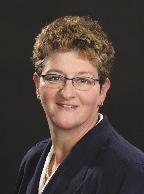Having recently retired a 19 year old dressage horse (King Solomon) here are four key points I have learned from him, and horses in general, that relate to business, and life in general.
1) Look the horse in the eye
They say that the eye reveals the soul of the horse. Temperament is paramount in a horse since training a 1,500 lb. animal is a already daunting task. But an ill-tempered one is not fun and is unsafe. A horse having ill temper is similar to a person lacking ethics. You never make it go away (train it out of the horse), you just regulate it. It is always better working with a horse with natural good temperament. For the most part, regardless of how a horse is used, an ill tempered horse is ill tempered. So before buying or riding a new horse, look the horse in the eye.
A mission statement is a reflection of the soul of the company. Take time and read and understand a company's mission statement. Owners/principals, think about your mission. Without a clear mission, purpose may be uncertain to your employees, your customers and even to you. A mission statement serves as a compass for all times. When you have a mission, you are saying, I am here for a reason and this is what I am about.
2) Be Fair and Ethical Every Day
For ethics to have meaning, there needs to be a third party or greater good to protect. Within the horse world, putting the horse's needs before our own is being ethical to the horse. No animal is a mere possession. Ethic prevails when their long term care is considered.
In business, doing what is right, is not always easy either. As an appraiser, we serve our client by getting them a professional appraisal in a timely manner. We service them by giving them a fair fee and a fair turn around time. But the value is ours, not theirs. The value is the critical ethical part. The public trust drives your conscience and holds one to a higher ethical standard. Doing what is right and doing what is fair are key issues. An appraiser must provide an opinion of value that a property deserves, not what someone wants.
3) Earn Their Trust
The more a horse is properly cared for and properly ridden, the more they trust us. Trust is something a rider earns every day. It is earned by doing the right thing every time in the saddle by making the process fair and understandable to the horse. A strong constitution, along with technique and empathy make a good rider. But it is the trust the makes the partnership.
In business, trust is earned every job by doing a high quality job, in the time table it is needed for a fair fee. Trust is not something you buy, demand or even pay for. It is the intangible part of a business relationship. The handshake or the contract is just the tool. The trust comes from the soul. It is hard to have a business relationship if you don't trust someone. Now more than ever, do business with someone you inherently trust.
4) Keep The highest standard
A standard defines what is minimum for daily practice. In anything worthwhile, it is best to keep a high standard. Riders and trainers try to keep "the highest standard every day" when training a horse. Holding yourself to a higher standard than even your biggest critic or most critical client (or harshest judge) serves you well when your goal is to ride to the highest standard you are capable of, every day. It is interesting how good you can get at something when you practice it thousands of hours every year. There are many similarities in business practice too.
Conclusion
We are in turbulent times. There are major structural changes in the financial markets, the capital markets, retailing, and huge government interventions that are likely to make long term changes. Most of these changes are beyond our daily control. But you can control these four things in your own business, your mission, your ethics, your honesty and your standards. In horse training and competing, when times get tough, you turn back to basics and reevaluate. Then move forward step by step. In business it is the same.
Rachel Gioia, MAI is a practicing commercial real estate appraiser with offices in Glastonbury, Conn. She was awarded her MAI designation in 1992. She is a member of several Connecticut professional organizations including the Real Estate Exchange (CREW Network), the Appraisal Institute, Women Lead and the Real Estate Finance Association. She is also a recent graduate of the USDF judges training program and is active in several equestrian organizations.
Tags:
Lessons learned from King Solomon (horse) that relate to business and life in general
June 17, 2009 - Connecticut









